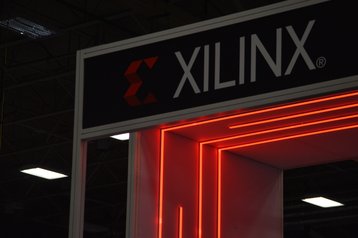AMD will acquire Xilinx in an all-stock transaction valued at $35 billion.
The transaction has been unanimously approved by both companies' boards, but is subject to approval by AMD and Xilinx shareholders, regulatory approvals, and other customary closing conditions. It is currently expected to close by the end of calendar year 2021.
Targeting the data center sector
Xilinx is best known for its field-programmable gate arrays (FPGAs), which consist of logic blocks that can be configured by the customer on the spot to accelerate specific workloads. The chips have proved popular in automotive, aerospace, and military sectors, as well as 5G networking and data centers. Its primary rival, Altera, was acquired by Intel for $16.7 billion back in 2015.
“Our acquisition of Xilinx marks the next leg in our journey to establish AMD as the industry’s high performance computing leader and partner of choice for the largest and most important technology companies in the world,” said AMD President and CEO Dr. Lisa Su.
“This is truly a compelling combination that will create significant value for all stakeholders, including AMD and Xilinx shareholders who will benefit from the future growth and upside potential of the combined company. The Xilinx team is one of the strongest in the industry and we are thrilled to welcome them to the AMD family. By combining our world-class engineering teams and deep domain expertise, we will create an industry leader with the vision, talent and scale to define the future of high performance computing.”
Victor Peng, Xilinx president and CEO, added: “We are excited to join the AMD family. Our shared cultures of innovation, excellence and collaboration make this an ideal combination. Together, we will lead the new era of high performance and adaptive computing. Our leading FPGAs, Adaptive SoCs, accelerator and SmartNIC solutions enable innovation from the cloud, to the Edge and end devices.
"Joining together with AMD will help accelerate growth in our data center business and enable us to pursue a broader customer base across more markets.”
The combined business will include around 13,000 engineers and over $2.7 billion of annual R&D investment.
The acquisition comes as AMD has seen steady gains in CPU market share from Intel in the consumer and data center sectors. Since launching its first-generation Epyc server CPU back in 2017, the company has grown in the server market, hitting double-digit market share in June. That same month, Intel was forced to delay the roll-out of its 7nm processors due to manufacturing issues.
This year, rival Nvidia also announced a major acquisition. In September, the GPU giant revealed it would spend $40bn to swallow the licensor of the world's most popular instruction set architecture, Arm.




